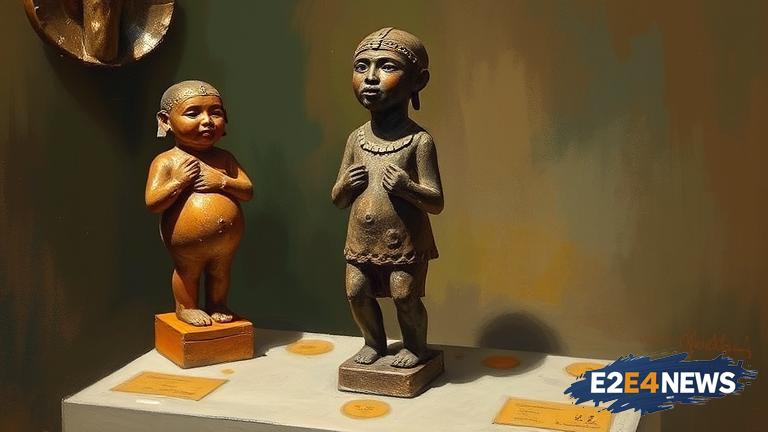The Ethiopian Heritage Authority has launched a concerted campaign to recover looted artifacts, a move aimed at restoring the country’s cultural identity. For decades, Ethiopia’s rich cultural heritage has been plundered, with numerous artifacts being smuggled out of the country. The authority is working tirelessly to identify and retrieve these stolen treasures, which are scattered across the globe. The restitution efforts are not only focused on retrieving artifacts but also on raising awareness about the importance of preserving cultural heritage. The Ethiopian government has been engaging with international partners, including museums and cultural institutions, to facilitate the return of looted artifacts. The authority is also collaborating with law enforcement agencies to track down and prosecute those involved in the illicit trade of cultural artifacts. The restitution campaign has gained significant momentum, with several high-profile recoveries in recent years. One notable example is the recovery of the 18th-century Ethiopian manuscript, which was stolen during the Italian occupation. The manuscript was recovered from a private collector in Europe and has since been returned to Ethiopia. The authority is also working to recover artifacts looted during the British expedition to Magdala in 1868. The expedition resulted in the plundering of numerous cultural artifacts, including the famous Magdala treasure. The Ethiopian government has been negotiating with the British government and museums to secure the return of these artifacts. The restitution efforts are not limited to artifacts looted during colonial times but also include those stolen during the country’s civil war. The authority is working to recover artifacts from private collectors and museums, with a focus on ensuring their safe return and preservation. The recovery of looted artifacts is not only a matter of cultural significance but also a symbol of national pride. The Ethiopian government is committed to preserving its cultural heritage and ensuring that future generations can appreciate and learn from their rich history. The authority is also engaging with local communities to raise awareness about the importance of cultural preservation and the need to protect cultural artifacts. The restitution campaign has sparked a national conversation about the importance of cultural heritage and the need to reclaim looted artifacts. The Ethiopian government is working to establish a national museum to showcase the country’s cultural treasures and provide a safe and secure environment for their preservation. The museum will also serve as a center for cultural education and research, promoting a greater understanding and appreciation of Ethiopia’s rich cultural heritage. The restitution efforts are a testament to the country’s commitment to preserving its cultural identity and ensuring that its rich history is protected for future generations. The authority is confident that the restitution campaign will continue to gain momentum, with more looted artifacts being recovered and returned to their rightful home. The recovery of looted artifacts is a complex and challenging process, requiring collaboration and cooperation from international partners. The Ethiopian government is committed to working with the international community to ensure the safe return of looted artifacts and to promote a greater understanding and appreciation of cultural heritage.
